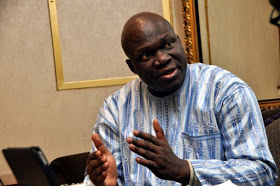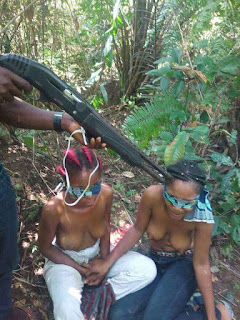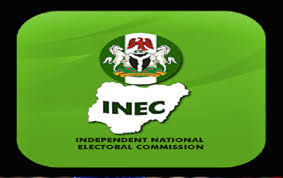Biafra, Oodua and the seventh lesson By Reuben Abati
Article written by former presidential spokesperson, Reuben Abati...
Democracy does not necessarily translate into the disappearance of crises and dilemmas, (even trilemmas, quadrilemmas or more) in a country, either developed, developing or perhaps evolutionary. Built into the fabric of the right to choose is also the right to make mistakes and so, across Africa at this moment, in Nigeria, Tanzania, Cote d’Ivoire, Burundi, Guinea Conakry, Rwanda, the lessons are being driven home, as elections are being held or have been held or will be held
That even as democracy spreads within the continent, the tension between stabilization and consolidation, trade offs and efficiency, pessimism and optimism, ethnocentrism and nationalism, remains a major concern.
Whatever the challenges may be however, both local and international authorities have a duty to ensure that the people learn from their mistakes, build on those mistakes positively, and prevent a relapse to either militarism or militarized democracy disguised either as benevolent democracy or charismatic autocracy, or ethnic revanchism as an option for national movement. The people’s right to make mistakes, oxymoronic as it may seem, is part of the democratic challenge. In Nigeria, our biggest mistake lies in the strange assumption that our problems will disappear simply through intra-elite displacement or the symbolism of grand gestures. And so, we end up with a boringly repetitive national life cycle.
This leads us to one urgent point: the biggest challenge that the Nigerian state faces today, tearing into the very idea of statehood, and of democracy, is the centrifugal pull from every direction that seems to have become disturbingly incremental. In the North Eastern part of the country, with the tragedy spreading, with casualties increasing, you have the heart-wrenching Boko Haram menace.
The Haram fundamentalists want a divided Nigeria. They have their own flag and they have made it clear that Western education and technology are sinful even if they use the same technology and intelligence to perpetrate their assault. With their flags and propaganda, they want “out” of Nigeria. Their act of defiance and the evil outcomes have increased since May even if civil society has chosen, all of a sudden, to be less anxious. But it is not a problem that can ever be treated lightly located as it is, in the tragic axis of global terror.
In the Middle Belt, an indigene-settler dichotomy, mutating as majorities-minorities conflict at the heart of Northern community relations, or as pastoralists-farmer confrontation has created seasons of violence and bloodshed with strong allegations of genocide and no sign of immediate abatement. In the South West, the recent abduction of a Yoruba leader, Chief Olu Falae by persons alleged to be Fulani herdsmen has resulted in the exchange of hate speech among Yoruba and Fulani ethnic champions defending territory, rights and identity.
In Ibadan, the other day, a group of Yoruba elders demanded that Fulani herdsmen should be expelled from Yoruba territory and that should the provocation continue, the Yoruba with their 50 million population will be prepared to exit Nigeria. In the Eastern part of the country, there is a resurgence of Biafran nationalism; young Igbos in diaspora, are insisting on the creation of a Republic of Biafra. The new voice of Biafran nationalism is Nnamdi Kanu’s Indigenous People of Biafra (IPOB), Radio Biafra, and the Igbos campaigning for Biafra in front of embassies in Europe, India and Japan! In the South South, there is a renewed consciousness of oil citizenship, with the Ijaw whose kinsman recently lost power at the centre protesting that they are victims of Hausa/Fulani harassment, and intimidation.
Perhaps the more worrisome is the noise being made about likely secession from Nigeria, by certain elements in the North East (terrorists actually seeking to carve out territory), by latter-d




Comments
Post a Comment